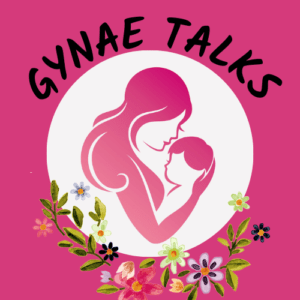Highlights
- Exclusive breastfeeding what is it ?
- What is the composition of the breast milk ?
- Advantages of breastfeeding.
- Long term risk of artificial feeding.
What is Breastfeeding in 2022: Breastfeeding is one of the most amazing things that a mother enjoys after delivery. For the first time you are providing nutrition to your baby holding in your lap.
Although it is a natural act, but it does not always come naturally. Breastfeeding takes patience and practice. If you are having trouble with breastfeeding like difficulty in latching your baby or feeding is causing pain, then take the help of staff nurse, pediatrician or your mother in law. Breastfeeding should be a pleasant act and not full of worries and tension.

What is Exclusive breastfeeding ?
Now we will discuss about what is Exclusive breastfeeding. Exclusive breastfeeding means feeding baby only mothers milk either by breastfeed or expressed for first six months of your baby. Any kind of vitamins and mineral supplements are recommended for six months. During this period baby has Breast feeding has many long term benefits for your baby.
Advantages of breastfeeding
Breastfeeding has many advantage. Due to its nutritional important it is considered as the complete food for the new born baby. Now let us understand what is the composition and advantage of the breast milk which makes it special.
A. Composition Breast milk is an ideal food for baby for easy digestion.
- CARBOHYDRATE in breast milk is mainly lactose which stimulates the growth of intestinal flora. This flora is needed for the synthesis of vitamin B.
- FAT In breast milk fat is in the form of small fat globules which are better emulsified and digested.
- PROTEIN is rich in lactalbumin and lactglobulin.
- MINERALS Breast milk has less amount of minerals (like potassium, sodium, calcium, chloride) and hence less burden on baby’s kidney.
B. PROTECTION against infection. Breast milk has numerous components like leucocytes, lysozyme, lactoferrin, immunoglobulins that helps fighting against infection and prevents growth of infective agents.
C. NEUROLOGICAL DEVELOPMENT Long chain fatty acids present in milk is essential for neurological development.
D. VITAMIN D promotes bone growth and protects the baby from rickets.
E. ADDITIONAL ADVANTAGES
- Breast milk is readily available food for the baby 24*7 and without any cost.
- It has a laxative action.
- Psychological benefit of mother child bonding.
- Prevents from risk of allergy in future life.
- Helps involution of uterus to its original size.
Long term risk of artificial feeding
- Type 1 diabetes
- Adult type 2 diabetes
- Sudden infant death
- childhood obesity
- Adult obesity
- Atopic dermatitis
- Reduced Intelligence Quotient (IQ)
breast feeding is meals on heels
Breast milk is best in nutirients, right in temperature, available everywhere and at anytime and is the healthiest gift that you can give to your baby.
Tips for breastfeeding
There are certain basics of breastfeeding that you should know to make your feeding more comfortable and pleasant
1. Proper positioning of baby while feeding- Your baby’s mouth should be wide open, with the nipple and areola complex into the mouth. This will minimize nipple soreness. You can also use feeding pillow to support your baby in your lap, so that feeding position is comfortable for you also.
2. Feed on demand- No fixed schedule should be followed for feeding of your baby. It should be feeding on demand.Feeding on demand will stimulate your breast to produce more milk. Because breast milk is easily digested, these babies feed more frequently than the babies who take formula milk.
3. Engorgement of breasts- You should feed your baby more frequently and feed from both breasts so that breasts do not get engorged. If the breasts remain engorged even after feeding then its better to express out extra milk. This milk can be stored at room temperature for the next feed. If breasts are engorged again, discard the stored milk and feed the baby from the breast directly.You can apply warm compress for few minutes before feeding to stimulate the milk flow. Apply ice packs after the feed to relieve the pain.
4. No to artificial nipples or pacifiers- Artificial nipples have different suckling action so they confuse the baby.
5. Eat right and take rest- Breastfeeding mothers should take a balanced diet which should include an extra 500 calories a day. Avoid caffiene and alcohol. Drink plenty of water to maintain hydration of your body.
Preparation for breastfeeding
The preparartion for breast feeding should actually be started from the middle of pregnancy. Any abnormality in the nipple such as cracked nipple or depressed nipple should be treated before delivery. Cleaning of nipple should be done during last four weeks of pregnancy.
Management of breastfeeding
- Wash the breast once a day.
- Wear a well supported, clean brasssiere.
- Wash your hands prior to feeding your baby.
- On demand feeding is encouraged.
Also read: NEW PARENTS ? HOW TO TAKE CARE OF NEW BORN BABY ?









